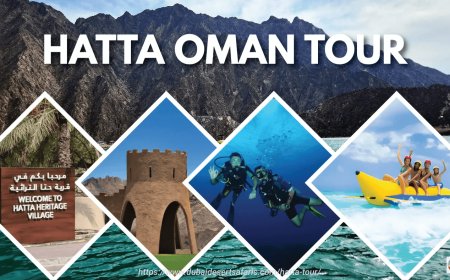Why Eco-Tourism Is the Future of Travel in Pakistan
Discover the breathtaking beauty of Pakistan with Nature Hike Pakistan, offering exceptional Hunza Tour Packages, Skardu, Naran Kaghan, Azad Kashmir, Swat Kalam, Kumrat Valley Tour Packages, and Murree. Based in Lahore, Punjab, we specialize in creating unforgettable experiences tailored to your adventurous spirit, taking you through the most picturesque landscapes and hidden gems of Pakistan. Whether you seek the serenity of mountains, the thrill of valleys, or the charm of historic sites, our expertly crafted tours promise memories that last a lifetime. Book your dream journey today and let the adventure begin!

Why Eco-Tourism Is the Future of Travel in Pakistan
As global awareness around climate change and environmental sustainability grows, eco-tourism is rapidly emerging as the preferred way to explore the worldPakistan included. With its breathtaking mountains, vibrant valleys, and rich cultural heritage, Pakistan offers an unmatched natural experience. But to protect this beauty for generations to come, responsible tourism is no longer optionalit's essential.
This article explores the environmental impact of traditional tourism, the critical role of local communities, how platforms like Nature Hike Pakistan are promoting sustainable travel, and the exciting future for eco-travelers in Pakistan.
The Environmental Cost of Traditional Tourism
Conventional tourism, while boosting local economies, often leaves a trail of ecological destruction. In Pakistans northern areas, the increasing influx of touristsespecially during peak seasonshas resulted in:
-
Littering and waste pollution in pristine natural areas.
-
Deforestation from overuse of firewood and lack of regulated camping.
-
Soil erosion and trail damage due to off-path hiking and excessive foot traffic.
-
Disturbance to wildlife and natural habitats.
Popular spots like Fairy Meadows, Lake Saif-ul-Malook, and Shogran have started showing signs of degradation. Without regulation and responsible behavior, these gems could lose the charm that makes them so special.
The Role of Local Communities in Conservation
Eco-tourism thrives on the active involvement of local communities. When managed correctly, it allows residents to benefit economically while incentivizing the protection of natural resources.
In the mountainous regions of PakistanGilgit-Baltistan, Chitral, Swat, Hunzalocals are not just guides or porters. They are custodians of the land, culture, and heritage. Their involvement ensures:
-
Authentic experiences for visitors.
-
Sustainable resource use such as regulated grazing and controlled tourism flow.
-
Cultural preservation by sharing stories, food, and traditions with tourists.
-
Reduced environmental impact, as they have a natural stake in keeping the land healthy.
Community-led lodges, eco-campsites, and guided trekking groups are already proving successful in places like Misgar, Chipursan, and Basho Valley.
How Nature Hike Pakistan Supports Responsible Travel
At Nature Hike Pakistan, we are committed to being more than just a travel platformwere a movement for sustainable exploration. Here's how were making a difference:
-
Curated Eco-Friendly Destinations
We promote trails and campsites that are under lesser pressure, allowing for responsible tourism flow while spreading awareness. -
Support for Local Guides and Artisans
Our network includes locally trained guides, homestays, and craft communities, ensuring tourism dollars go back to the people who care for the land. -
Environmental Education
Every trip includes a short orientation on Leave No Trace principles, eco-awareness, and how to interact respectfully with nature. -
Waste-Free Travel Initiatives
We encourage travelers to carry reusable water bottles, refuse plastic bags, and participate in clean-up hikes where litter is collected along the trail. -
Sustainable Gear Promotion
From eco-tents to biodegradable soaps, we recommend or sell hiking and camping gear that minimizes ecological footprints. -
Digital Awareness Campaigns
Through blogs, videos, and social content, we educate the wider audience on how eco-tourism is not just betterbut necessary.
The Future of Eco-Tourism in Pakistan
Eco-tourism isnt just a trendits a long-term solution for Pakistans fragile ecosystems and rural economies. Here's what the future could hold:
-
Eco-villages: Fully sustainable, solar-powered accommodations managed by local families.
-
Wildlife tracking tours: Ethical, non-invasive opportunities to observe species like the Himalayan ibex, snow leopards, or markhor.
-
Community-led trekking permits: Regulating the number of hikers and generating funds for trail maintenance and waste management.
-
Eco-certification for businesses: Establishing a standard for lodges and guides that practice responsible tourism.
With the right government policies, NGO partnerships, and consumer awareness, Pakistan can become a global leader in sustainable adventure travel.
Final Thoughts
The mountains, lakes, and valleys of Pakistan are timelessbut only if we protect them. Eco-tourism offers the path forward, where travelers can connect with nature, support local livelihoods, and tread lightly on the Earth.
Nature Hike Pakistan invites you to join this movementnot just as a tourist, but as a caretaker of Pakistans natural heritage.









































